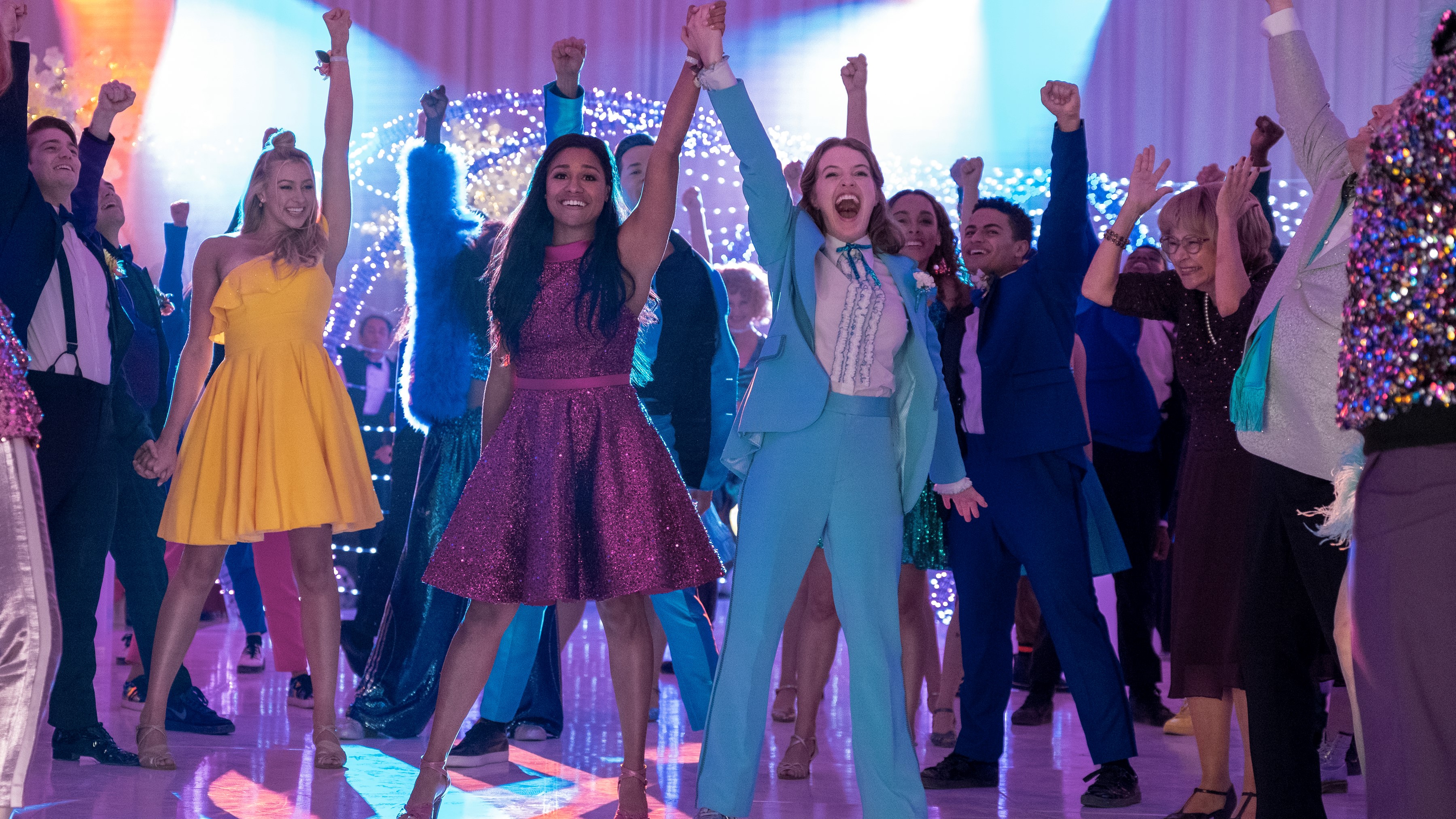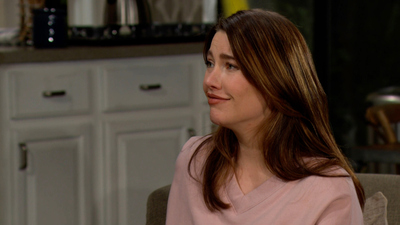What to Watch Verdict
The Prom's emphatic excesses make up for its shallow faults.
Pros
- +
🎶Every musical number is an extravaganza of campy charm.
- +
🎶Its positive message of queer acceptance is laudable.
- +
🎶The actors who know what they're doing are a joy to spend time with.
Cons
- -
🎶It doesn't quite balance its inherent cynicism with its hopeful optimism.
- -
🎶James Corden's dramatic scenes are glaringly unconvincing.
In adapting a stage musical, a filmmaker must necessarily approach many problems in converting the heightened theatricality and the limited space of the stage to the nearly limitless possibilities of the screen while still retaining the core of that musical experience. For The Prom, director Ryan Murphy eschews realism and grounded personae to go as bombastically high-camp as musicals get (without being made by Baz Luhrmann), leaving relatively little to fault the film as an adaptation of a musical that wears its proud gayness on its sequined sleeves. If you’re a fan of the show, you’ll probably be a fan of the film. However, the show itself is not above reproach, and though the experience is a well-rounded comic delight, it might also perhaps be a little too self-important for its own good.
After a completely failed stage production leaves them drowning in self-pity and alcohol, Broadway stars Dee Dee Allen (Meryl Streep) and Barry Glickman (James Corden) decide they need an activist cause to revitalize their careers. With the assistance of fellow actors Angie Dickinson (Nicole Kidman) and Trent Oliver (The Book of Mormon’s Andrew Rannells), they make their way to a rural Indiana town, where the local PTA has banned lesbian Emma Nolan (Jo Ellen Pellman) from attending prom because she intended to invite her girlfriend, prompting a civil rights battle led by the school principal (Keegan-Michael Key). Acting as an invasive force, the actors descend on the town to enforce an agenda that is outwardly progressive but motivated by narcissism.
There’s an underlying theme of condescension toward rural communities that pervades the film, which is partially a symptom of writers Chad Beguelin and Bob Martin (adapting their own stage production) trying to mock everyone equally but is ultimately a limit of their own perspective. The invading stage actors are clearly farcical in their erudite posturing and ignorance of how little their celebrity means in a town without lavish amenities, but the film is also pushing hard for an optimistic tone of queer acceptance that results in bigotry being cured through the magic of song and dance, so in a way, their pomposity is justified by their ends, even if not by their motives. This in turn fails to adequately justify the leads’ transition from selfishness to selflessness, uncovering depths to their characters that aren’t so much evolutionary as they are substituting backstory for character development. This is all to say that The Prom is bogged down by too many characters whose growth is inadequately explored in favor of cheap gags that conflate bigotry with ignorance and extended musical numbers that don't do all that much to push the plot forward.
It’s a saving grace, then, that Ryan Murphy directs those setpieces with such joyful aplomb that it largely excuses how shallow and pat the story turns out to be. Shaded in the oversaturated hues Murphy has made a trademark from, The Prom is a front-to-back bombardment of creatively staged, emphatically choreographed, and energetically scored acts of musical excess, drowning the performers in intensely flattering lighting and transforming the benign school, mall, and home locales into playgrounds of acoustic revelry. (I was flabbergasted by how large the principal’s office was until I remembered what kind of movie we were in and was therefore unsurprised when the space became overrun by a wildly gesticulating Meryl Streep.) In spite of its narrative missteps, its pure dedication to its manic eccentricity makes for an extremely enjoyable time that will prompt the addition of the soundtrack to more than a few playlists.
Yet for as much as everyone is an excellent singer, the cast’s dramatic chops are a mixed bag. Streep, Rannells, and Kidman slip into their campy personas without issue and are able to affect more serious moments with consistency and grace. Keegan-Michael Key and Kerry Washington (playing the head of the PTA, Mrs. Greene) are emphatic avatars of empathy and ignorance, respectively, with Key, in particular, flexing an impressive range. The weak links, unfortunately, are Jo Ellen Pellman and James Corden. Newcomer Pellman grins her way through every scene as if she’s star-struck by every single one of her scene partners, and while it certainly plays into the production’s overall optimism, it also becomes distracting when the character is supposed to be suffering under her school’s institutionalized bigotry. Corden, meanwhile, affects such exaggerated effeminate mannerisms that it borders on gay caricature. It’s a role that should be the lynchpin of the film’s tonal shift from gleeful self-absorption to celebratory empathy and it simply falls flat under the weight of Corden’s thudding lack of nuance.
Despite its faults, The Prom is an enjoyable romp. Its progressivism and energetic leans into its musical strengths ultimately outweigh its cynical dramatic shortcomings, and that might just be what makes musical theater work in the first place. At the end of the day, it’s all about being whisked away on the pure emotion of song and spectacle, and good intentions can go a long way in making the faults of such an experience seem less important.
The Prom is available on Netflix.
Leigh Monson has been a professional film critic and writer for six years, with bylines at Birth.Movies.Death., SlashFilm and Polygon. Attorney by day, cinephile by night and delicious snack by mid-afternoon, Leigh loves queer cinema and deconstructing genre tropes. If you like insights into recent films and love stupid puns, you can follow them on Twitter.












